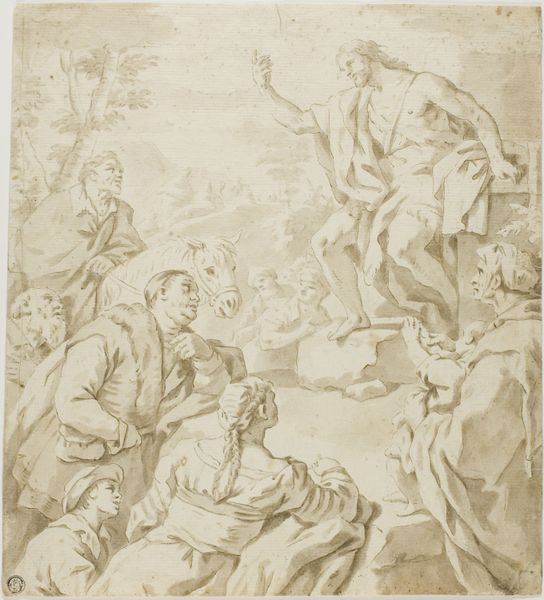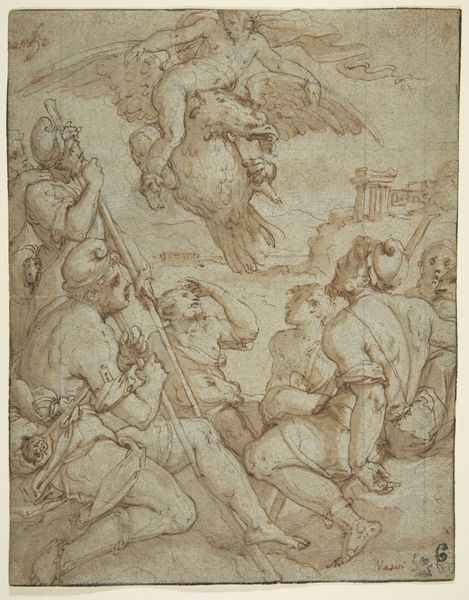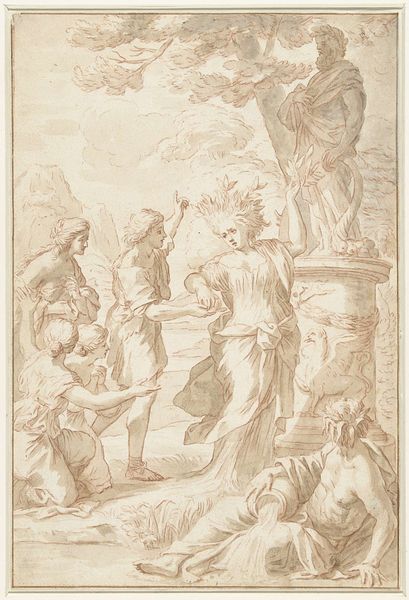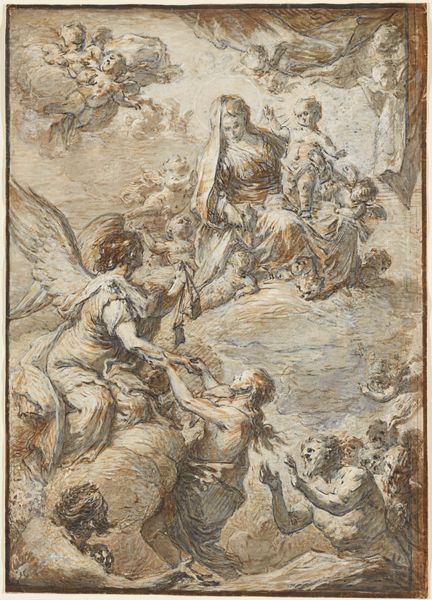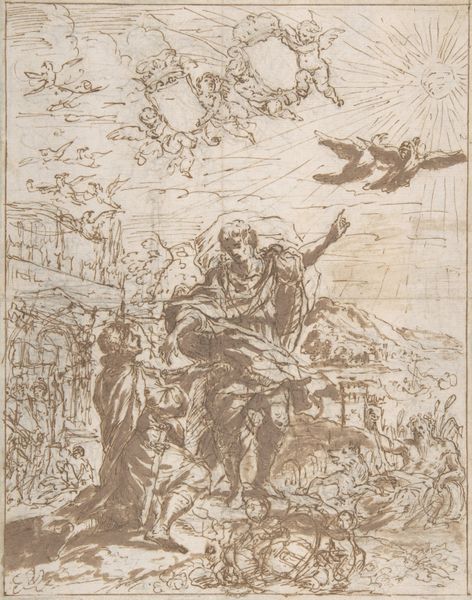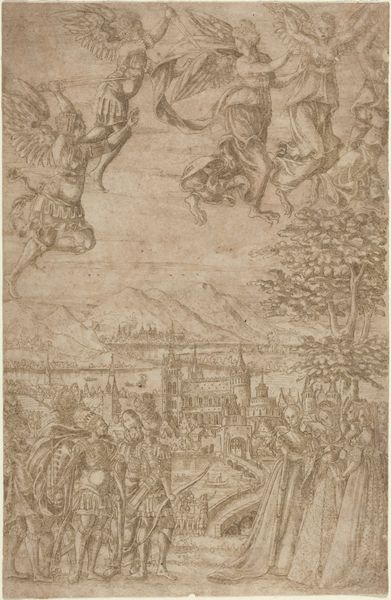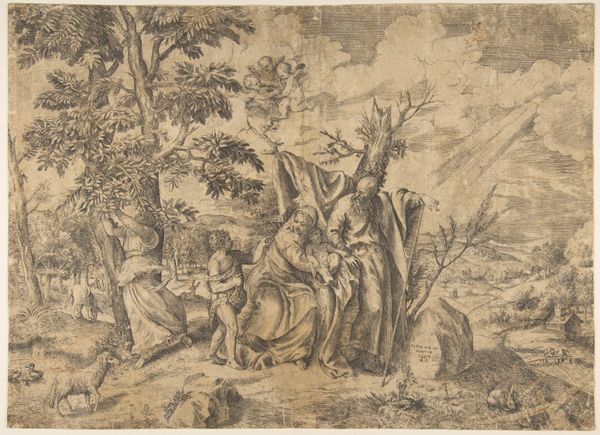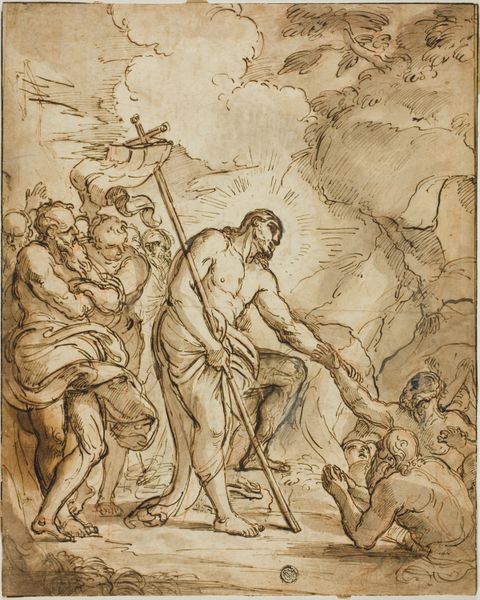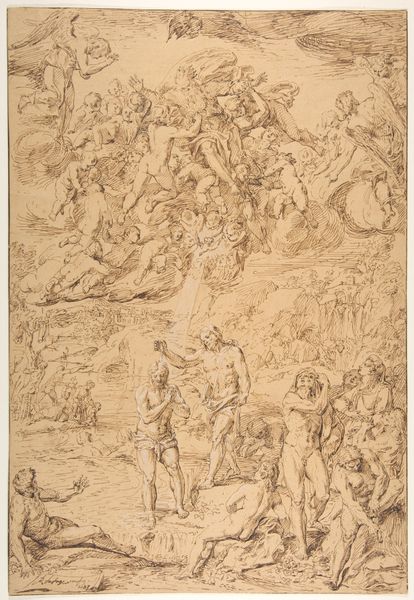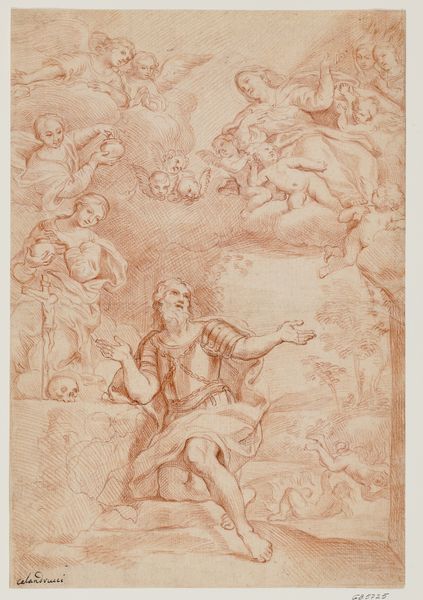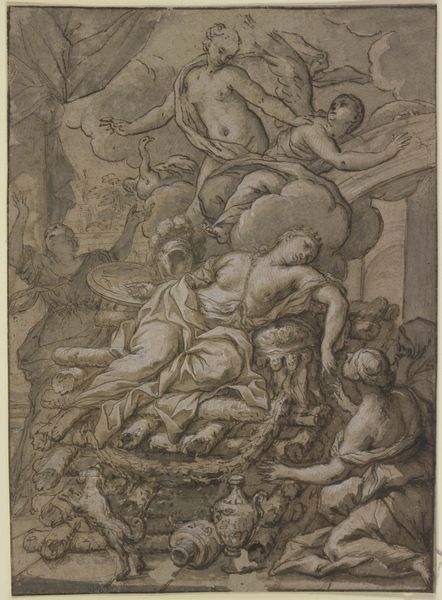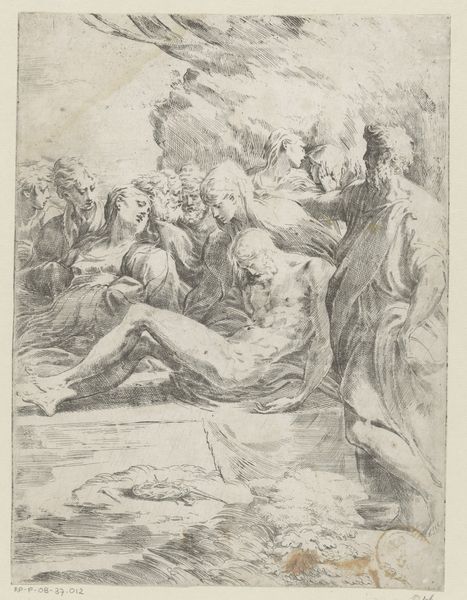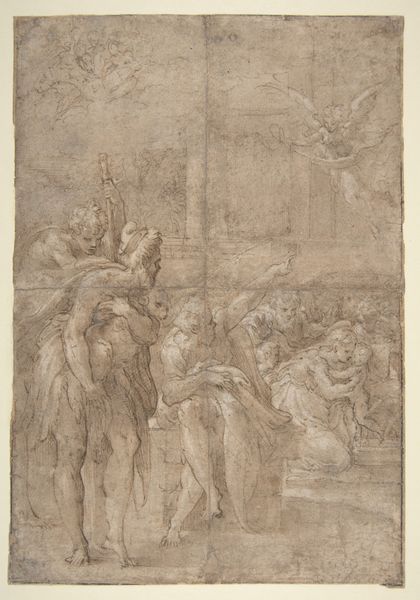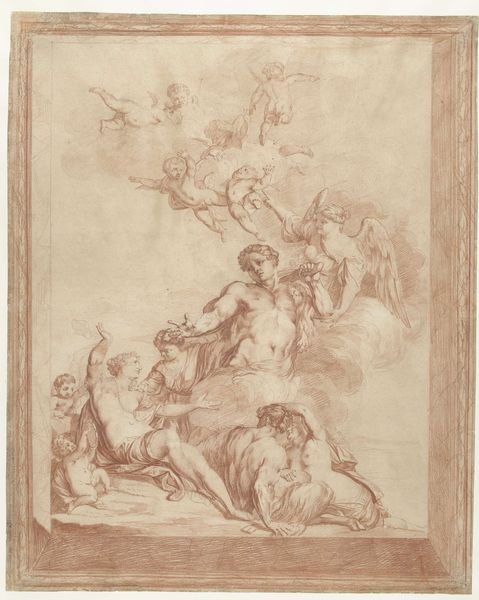
drawing, ink
#
drawing
#
ink painting
#
pencil sketch
#
charcoal drawing
#
figuration
#
11_renaissance
#
ink
#
history-painting
Copyright: Public Domain
Aert Claesz’s “Baptism of Christ” was made around the turn of the 18th century, using pen and brown ink on paper. The sepia ink dictates the drawing’s visual effect, creating an atmospheric quality, and allowing Claesz to build depth through subtle tonal variations. He masterfully uses hatching and cross-hatching to sculpt forms and suggest light and shadow. The fluidity of the ink lends itself well to the dynamic composition, full of movement and emotion. The choice of pen and ink, instead of a more elaborate medium like oil paint, speaks to the work's function, likely a preparatory sketch for a larger painting. This reveals a glimpse into the artistic process of the time, where drawings served as essential tools for planning and executing complex compositions. Thinking about process gives us a richer appreciation of the artist's craft, and a broader understanding of the artwork within the context of 18th-century art production.
Comments
No comments
Be the first to comment and join the conversation on the ultimate creative platform.
